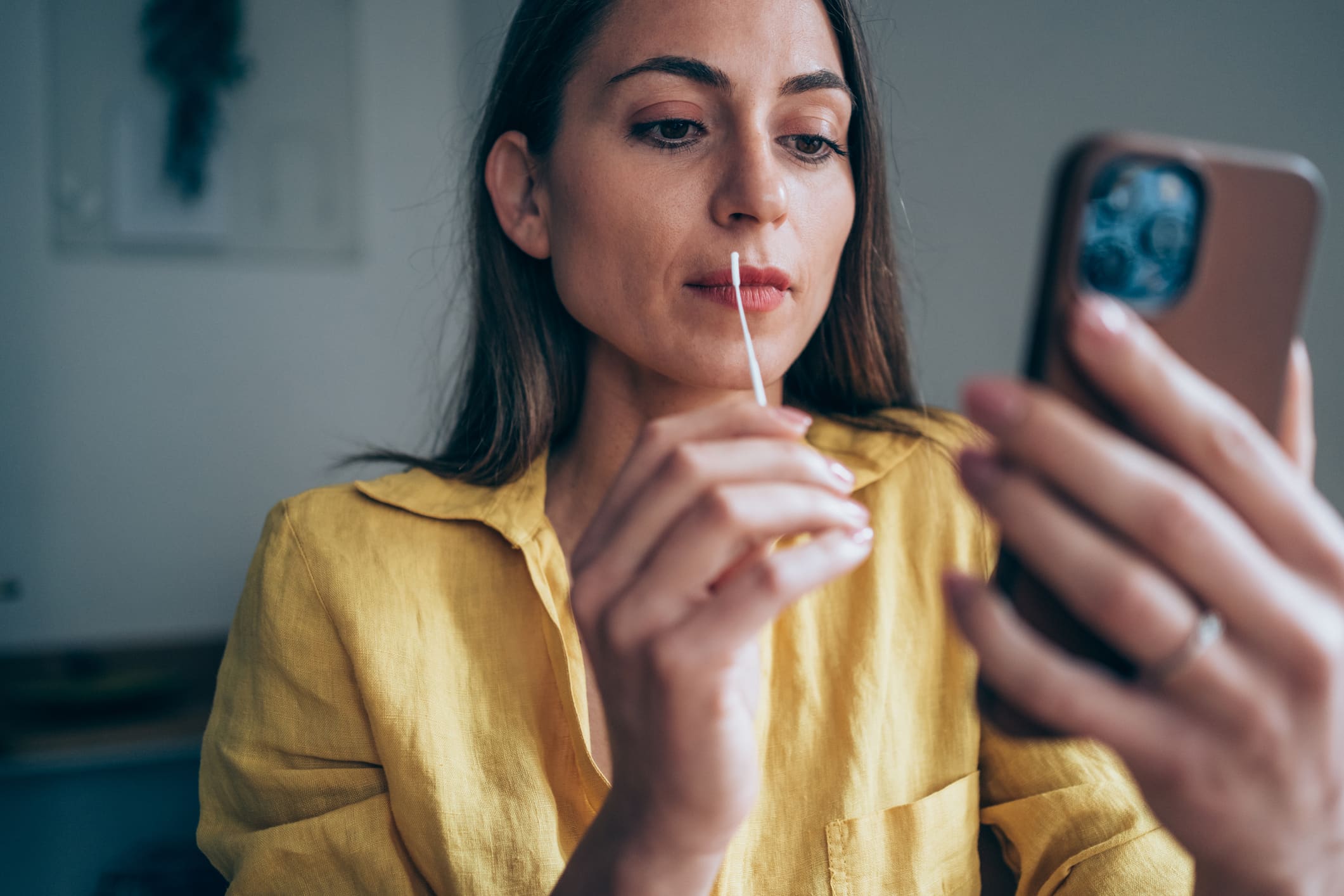
Earlier this week, the U.S. reported a record 1 million new daily Covid cases — and that might only be the tip of the iceberg.
That’s due, in part, to the skyrocketing number of at-home Covid tests that have been sold since the virus’ highly infectious omicron variant arrived in the U.S. last month. Clinics and doctors’ offices are required by law to report Covid test results to state and local public health officials, but people who take at-home tests aren’t — and many of those test results don’t get reported.
Now, many health experts are encouraging people to report positive at-home tests to their state’s public health agencies to help their area’s pandemic response planning, which includes guidelines for contact tracing and mask–wearing.
“In general, the more information the public health agencies have, the better,” Dr. Dwayne Breining, executive director of New Hyde Park, New York-based Northwell Health Labs, tells CNBC Make It.
Typically, Breining says, at-home Covid test kits provide information on how to report your results. But since each state and local practices are different, you’ll need to check your state and county’s Department of Health websites.
Some local health departments — like in Marin County, California, and Tompkins County, New York — have simple online self-reporting forms. Washington D.C.’s health department also has an iPhone feature and Android app, which launched on Christmas Eve, in addition to its self-reporting web portal.
If you test positive and don’t report it, you can make it harder for your county to track cases and make health recommendations. Underreported case numbers could cause health agencies to prematurely recommend loosening their Covid restrictions, like masking or social distancing guidance, which could potentially put other peoples’ lives at risk.
People should also report any positive at-home test results to their primary physician, says Dr. Georges Benjamin, executive director of the American Public Health Association. Doing so can help them “get personal advice about therapies that may be available and to help with them with their health care,” Benjamin says.
Omicron’s symptoms may be milder than those from Covid’s delta variant, but delta is still circulating in the U.S. — and you’re unlikely to know which version you have right away. Your healthcare provider can help walk you through signs and symptoms to watch out for once you get a positive result, says Dr. Timothy Brewer, a professor of medicine in the division of infectious diseases at the David Geffen School of Medicine at UCLA.
“The provider also may recommend treatments for those persons at high risk for serious disease,” Brewer says.
Sign up now: Get smarter about your money and career with our weekly newsletter
Don’t miss:
Mix-and-match Covid vaccine boosters are here — How to choose the best one for you
Antibodies aren’t everything — Covid vaccines have another secret weapon to fight omicron




